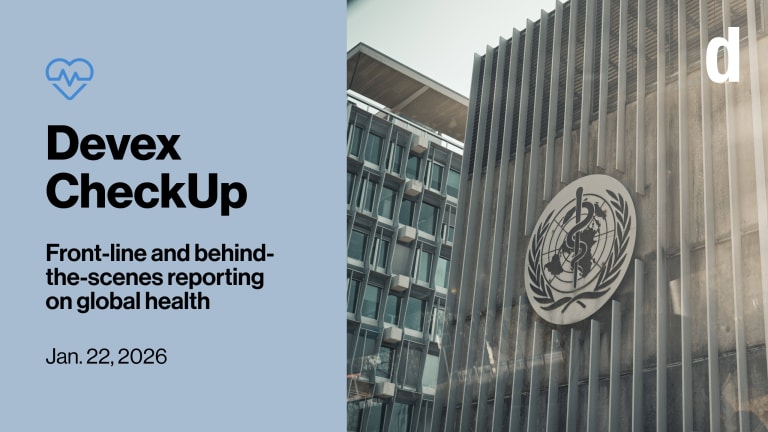Dec. 12 marks Universal Health Coverage Day, the second anniversary of a United Nations resolution endorsing UHC as a global priority. The last two years have seen a growing consensus that pursuing UHC will save lives and alleviate poverty, especially in developing countries.
Meanwhile, the devastating Ebola crisis continues to claim lives and stifle opportunity in West Africa. Observers were quick to note that UHC could have helped arrest the spread of Ebola, yet countries like Nigeria, Uganda and the Democratic Republic of the Congo — all quite early on their paths toward UHC — have successfully contained Ebola outbreaks.
So is UHC really the answer?
This article is free to read - just register or sign in
Access news, newsletters, events and more.
Join usSign inPrinting articles to share with others is a breach of our terms and conditions and copyright policy. Please use the sharing options on the left side of the article. Devex Pro members may share up to 10 articles per month using the Pro share tool ( ).
The views in this opinion piece do not necessarily reflect Devex's editorial views.
Chelsey R. Canavan is a research and communications specialist with Management Sciences for Health, a global non-profit that develops sustainable health systems in Africa, Asia, Latin America and the Middle East. She also serves as deputy coordinator of Health for All Post-2015, a global campaign of civil society organizations advocating for universal health coverage in the post-2015 development agenda. She was an ASPPH Allan Rosenfield Global Health Fellow at the U.S. Centers for Disease Control and Prevention, and has a MSPH in health policy and management from the University of North Carolina.
Jonathan S. Jay is an attorney, bioethicist and senior writer for Management Sciences for Health, a global nonprofit that develops sustainable health systems in Africa, Asia, Latin America and the Middle East. Previously affiliated with Georgetown University and the National Institutes of Health, Jay serves as coordinator of Health for All Post-2015, a global campaign of civil society organizations advocating for universal health coverage in the post-2015 development agenda.
Jonathan Quick is president and chief executive officer of Management Sciences for Health, a non-profit global health organization that develops sustainable health systems in Africa, Asia, Latin America and the Middle East. Quick is also a faculty member at Harvard Medical School and chair of the Global Health Council. Prior to joining MSH, he was the director of Essential Drugs & Medicines Policy at the World Health Organization.










